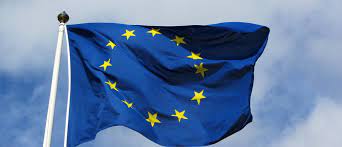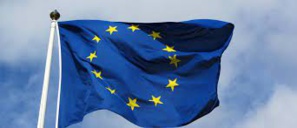In its heaviest measures yet to penalize Moscow for its invasion of Ukraine, the European Union's chief executive recommended a progressive oil embargo on Russia, as well as penalties on its main bank and a ban on Russian broadcasters from European airwaves, on Wednesday.
If EU nations agree to the idea, it will be a watershed moment for the world's largest trading union, which is reliant on Russian energy and needs to diversify its sources.
However, Russia's invasion of Ukraine by land, sea, and air on February 24, as well as a renewed Russian onslaught in eastern Ukraine and horrifying images of slaughter in Ukrainian communities, has overridden the EU's and Russia's reluctance to impose sanctions.
The president of the EU executive warned Moscow should suffer repercussions, echoing popular fury in the West over Russian President Vladimir Putin's campaign, which Moscow claims is a "special military operation" to counter dangerous nationalists.
"Putin must pay a price, a high price, for his brutal aggression," European Commission President Ursula von der Leyen told the European Parliament in Strasbourg. read more
"Today, we will propose to ban all Russian oil from Europe," she said to applause in the chamber.
The Commission's measures include phasing out Russian crude oil and refined products supplies within six months and by the end of 2022. Von der Leyen promised to keep the damage on European economy to a minimum.
Brent crude gained 3% to well than $108 a barrel in early trading.
If agreed upon, the embargo would follow in the footsteps of the United States and the United Kingdom, who have already imposed sanctions to cut off one of Russia's most important revenue streams, as the West imports more than half of Russia's oil and petroleum products.
"We are addressing our dependency on Russian oil. And let's be clear, it will not be easy because some member states are strongly dependent on Russian oil, but we simply have to do it," she said.
The Commission's proposals are anticipated to be adopted by ambassadors from the EU's 27 nations as early as this week, allowing them to become law soon after.
Oil can be shipped from other sources instead of pipelines, and the EU thinks that its methodical approach would prevent an oil shock. Due to their strong reliance on Russian energy, diplomats told Reuters that Hungary and Slovakia could be exempt from the ban until the end of 2023.
The EU's creeping embargo on Russian oil, according to Simone Tagliapietra of the Brussels-based Bruegel think-tank, is still hazardous.
"In the short term it might leave Russian revenues high while implying negative consequences for the EU and the global economy in terms of higher prices - not to mention retaliation risks (by Russia) on natural gas supplies," he said.
Apart from oil, the current wave of sanctions suggests targeting Russia's largest bank, Sberbank, adding it to the list of banks previously barred from using the SWIFT messaging system.
"We de-SWIFT Sberbank – by far Russia's largest bank, and two other major banks. By that, we hit banks that are systemically critical to the Russian financial system and Putin's ability to wage destruction," von der Leyen said.
"This will solidify the complete isolation of the Russian financial sector from the global system," she said.
Sberbank did not respond to a request for comment right away. The lender, which pulled out of practically all of its European markets in early March, previously stated that additional rounds of penalties would have little impact on its operations.
Without naming names, Von der Leyen stated that more high-ranking Russian military officials might face asset freezes and travel bans by the EU. She declared, alluding to the Kremlin, "You are not getting away with this."
Diplomats say state-owned Russian stations RTR-Planeta and R24 are among those recommended to be banned from European airwaves, despite von der Leyen's lack of specifics in her speech to parliament.
The EU's chief executive also proposed a post-conflict recovery plan for Ukraine, estimating that hundreds of billions of euros would be required to rebuild the country.
"Eventually, it will pave the way for Ukraine's future inside the European Union," von der Leyen said.
(Source:www.usnews.com)
If EU nations agree to the idea, it will be a watershed moment for the world's largest trading union, which is reliant on Russian energy and needs to diversify its sources.
However, Russia's invasion of Ukraine by land, sea, and air on February 24, as well as a renewed Russian onslaught in eastern Ukraine and horrifying images of slaughter in Ukrainian communities, has overridden the EU's and Russia's reluctance to impose sanctions.
The president of the EU executive warned Moscow should suffer repercussions, echoing popular fury in the West over Russian President Vladimir Putin's campaign, which Moscow claims is a "special military operation" to counter dangerous nationalists.
"Putin must pay a price, a high price, for his brutal aggression," European Commission President Ursula von der Leyen told the European Parliament in Strasbourg. read more
"Today, we will propose to ban all Russian oil from Europe," she said to applause in the chamber.
The Commission's measures include phasing out Russian crude oil and refined products supplies within six months and by the end of 2022. Von der Leyen promised to keep the damage on European economy to a minimum.
Brent crude gained 3% to well than $108 a barrel in early trading.
If agreed upon, the embargo would follow in the footsteps of the United States and the United Kingdom, who have already imposed sanctions to cut off one of Russia's most important revenue streams, as the West imports more than half of Russia's oil and petroleum products.
"We are addressing our dependency on Russian oil. And let's be clear, it will not be easy because some member states are strongly dependent on Russian oil, but we simply have to do it," she said.
The Commission's proposals are anticipated to be adopted by ambassadors from the EU's 27 nations as early as this week, allowing them to become law soon after.
Oil can be shipped from other sources instead of pipelines, and the EU thinks that its methodical approach would prevent an oil shock. Due to their strong reliance on Russian energy, diplomats told Reuters that Hungary and Slovakia could be exempt from the ban until the end of 2023.
The EU's creeping embargo on Russian oil, according to Simone Tagliapietra of the Brussels-based Bruegel think-tank, is still hazardous.
"In the short term it might leave Russian revenues high while implying negative consequences for the EU and the global economy in terms of higher prices - not to mention retaliation risks (by Russia) on natural gas supplies," he said.
Apart from oil, the current wave of sanctions suggests targeting Russia's largest bank, Sberbank, adding it to the list of banks previously barred from using the SWIFT messaging system.
"We de-SWIFT Sberbank – by far Russia's largest bank, and two other major banks. By that, we hit banks that are systemically critical to the Russian financial system and Putin's ability to wage destruction," von der Leyen said.
"This will solidify the complete isolation of the Russian financial sector from the global system," she said.
Sberbank did not respond to a request for comment right away. The lender, which pulled out of practically all of its European markets in early March, previously stated that additional rounds of penalties would have little impact on its operations.
Without naming names, Von der Leyen stated that more high-ranking Russian military officials might face asset freezes and travel bans by the EU. She declared, alluding to the Kremlin, "You are not getting away with this."
Diplomats say state-owned Russian stations RTR-Planeta and R24 are among those recommended to be banned from European airwaves, despite von der Leyen's lack of specifics in her speech to parliament.
The EU's chief executive also proposed a post-conflict recovery plan for Ukraine, estimating that hundreds of billions of euros would be required to rebuild the country.
"Eventually, it will pave the way for Ukraine's future inside the European Union," von der Leyen said.
(Source:www.usnews.com)






